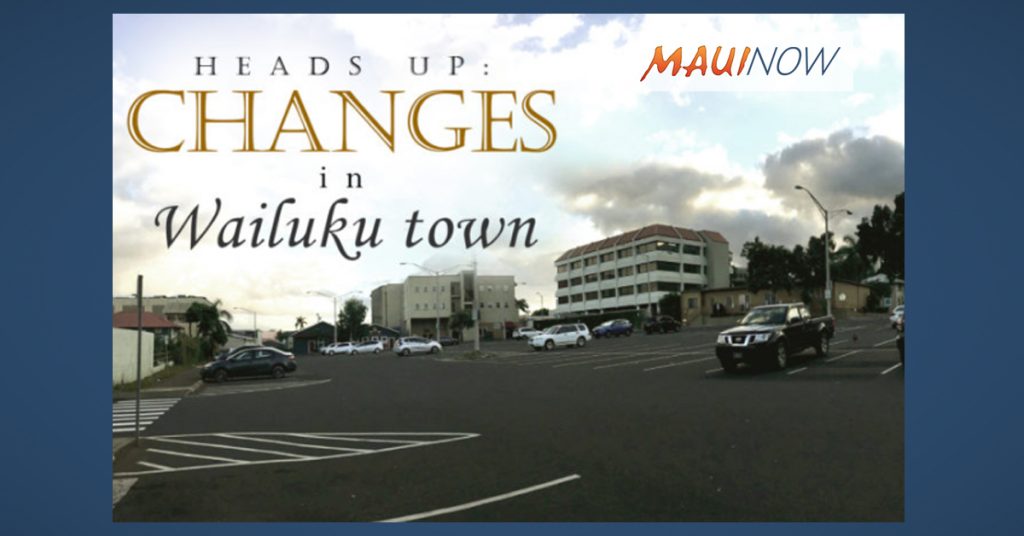Wailuku Civic Complex Details, Funding Update

Wailuku municipal parking lot. PC: Wailuku Community Association
Project details and funding updates on the Wailuku Civic Complex have been released and are available along with a list of frequently asked questions at the Maui Redevelopment Agency website.
The effort to redevelop the current Wailuku municipal parking lot between the ʻĪao Theatre and the Wailuku Executive Center includes plans for a $27 million 428-stall parking structure. This would more than double the current 200 stalls now at the municipal lot.
County officials say the main thrust of the project is for it to be an “activity generator” with a three-story Civic Building, a 7,500-square-foot festival plaza, a 5,500-square-foot covered lanai and a 14,000-square-foot indoor public market.
The project also features three blocks of upgraded water and sewer lines, new storm drains, installation of subsurface power and utilities, and new sidewalks and repaved roads.
The update adds new information, such as details about project funding. In May, the County Council partially funded the project with $44 million to allow the Maui Redevelopment Agency and the Project Advisory Committee to proceed with needed infrastructure improvements and parking. In December, council members approved a budget amendment to appropriate another $40 million for the project. However, no bond funds have been authorized for the additional $40 million.
At 9 a.m. Friday, March 29, the County Council Economic Development and Budget Committee will take up a communication to the Department of the Corporation Counsel. It proposes bills that would reduce funding for the Wailuku Civic Complex project by nearly $67 million and cut a bond authorization for civic complex projects by $27 million.
In addition to Friday’s Committee meeting, there’s also a public meeting set for Thursday, April 4 at 5 p.m. in the Council Chambers. This meeting, hosted by the Office of the Managing Director, will include a question and answer session. Representatives of the Redevelopment office and staff will also be on hand to listen to and address public concerns about the first phase of construction.








